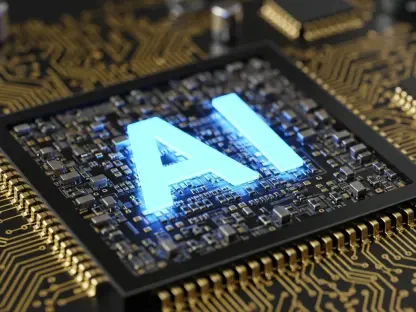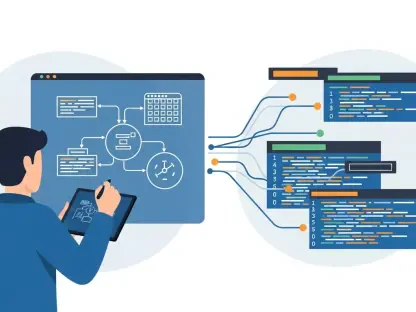The All Day DevOps (ADDO) event has long been a cornerstone for the latest trends and developments in DevOps, software development, and cybersecurity. This year, one of the focal points was the keynote by Pallavi Nargund, Principal Solutions Architect at Amazon Web Services (AWS). Titled “Transform your enterprises with Generative AI,” her speech delved into the profound impact generative artificial intelligence (AI) is having across various industries. From automating content creation to enhancing customer service, generative AI is becoming an essential tool that businesses are beginning to rely on for innovation and efficiency.
The Rise of Generative AI
Generative AI, a subset of machine learning, has transitioned from theoretical frameworks to practical applications at an astonishing pace. Modern advancements in computing power, coupled with vast data sets and sophisticated machine learning techniques, have enabled this leap. Generative AI goes beyond data analysis to create new content, automate processes, and improve customer interactions. Industries are now actively adopting generative AI, shifting from experimental phases to scalable, practical implementations. From automated content creation to advanced customer service solutions, generative AI is proving to be a game-changer. This pivotal moment signifies a shift where technology moves from a novel concept to a crucial component of business strategy.
Businesses are now realizing the true potential of generative AI, which has made significant inroads across various sectors. The rapid adoption is driven by its capacity to create highly personalized customer experiences and streamline a multitude of business operations. These advancements have been made possible due to the convergence of massive data availability, improved algorithms, and enhanced computational resources. Essentially, generative AI is not merely an extension of existing technologies but a revolutionary tool that is reshaping the way companies conduct their day-to-day activities. The transition from the experimental stage to large-scale deployments underscores the growing trust and reliance industries are placing on this transformative technology.
Transforming Business Landscapes
Businesses across various sectors are leveraging generative AI to redefine their operations. Pallavi Nargund’s keynote highlighted numerous industry examples where generative AI has made a significant impact. For instance, automated content creation is revolutionizing marketing and media sectors, enabling personalized and efficient content delivery. Customer service is another area where generative AI is making waves. Advanced chatbots and virtual assistants are now capable of handling complex queries, providing real-time solutions, and enhancing overall customer experience. These practical applications exhibit how generative AI is not just a theoretical possibility but a tangible, transformative tool for businesses.
The impact of generative AI in transforming business landscapes cannot be understated. For instance, in the healthcare sector, AI-driven diagnostic tools are assisting medical professionals in analyzing medical images, thereby accelerating diagnosis and treatment. Financial services are also harnessing the power of generative AI for fraud detection and personalized financial planning. The intricate ability of generative AI to quickly identify patterns and generate insights from large datasets is revolutionizing how businesses approach problem-solving and decision-making. This transformative potential encourages enterprises to integrate generative AI into their core strategies, thus spurring innovation and maintaining a competitive edge in their respective markets.
AWS’s Role in AI Innovation
Amazon Web Services has positioned itself at the forefront of AI transformation, offering robust tools and infrastructure essential for developing and scaling AI solutions. Nargund emphasized the flexibility that AWS provides, allowing enterprises to either leverage pre-built models or develop custom solutions to meet their unique needs. AWS’s contribution extends to comprehensive support for implementing generative AI. By providing an array of services tailored to AI and ML, AWS enables businesses to quickly adapt and integrate these technologies into their operations. This democratization of AI tools ensures that organizations of all sizes can benefit from the advancements in generative AI.
The advancements made possible by AWS in the field of generative AI highlight the company’s commitment to democratizing technology. Through services like Amazon SageMaker, companies can train and deploy machine learning models at scale, reducing the time and resources required to bring AI applications to market. AWS’s infrastructure supports extensive data processing and scalable compute power, which are crucial prerequisites for effective AI implementations. The ecosystem also includes easy-to-use APIs that enable businesses to integrate AI functionalities effortlessly into existing systems. AWS’s innovative tools and services, thus, empower companies not only to keep pace with rapid technological advancements but also to pioneer breakthrough solutions in their industries.
Practical Insights for DevOps
The integration of generative AI into DevOps workflows forms a critical part of Nargund’s insights. AI is proving indispensable in automating code generation, performing robust security testing, and streamlining various stages of the software development lifecycle. These enhancements not only improve productivity but also ensure higher standards of security and efficiency. By automating mundane and repetitive tasks, generative AI frees up valuable time for DevOps professionals, allowing them to focus on more strategic initiatives. The ability to generate code and detect vulnerabilities rapidly ensures that development cycles are shorter and more reliable, facilitating faster time-to-market for new products and services.
Generative AI empowers DevOps teams by enhancing automation and elevating development standards. For instance, AI-powered tools can generate code snippets or even entire modules based on high-level descriptions, thus accelerating the development process. Moreover, AI-driven security testing tools can identify vulnerabilities more accurately and promptly than traditional methods, enabling quicker fixes and bolstering overall system security. These capabilities enable DevOps teams to adopt a more agile approach, focusing on strategic enhancements while reducing manual intervention. Consequently, enterprises experience more efficient workflows, enhanced product quality, and a swifter response to market demands, making generative AI an invaluable asset in the software development lifecycle.
The Future Horizon of Generative AI
The All Day DevOps (ADDO) event has been a pivotal gathering for professionals to explore the latest trends in DevOps, software development, and cybersecurity. This year’s event featured a standout keynote by Pallavi Nargund, Principal Solutions Architect at Amazon Web Services (AWS). Her presentation, titled “Transform Your Enterprises with Generative AI,” deep-dived into the significant role generative artificial intelligence (AI) plays across a range of sectors. Nargund highlighted how generative AI is revolutionizing industries by automating tasks like content creation and enhancing customer service. This technology is becoming indispensable, enabling businesses to innovate more swiftly and operate more efficiently. With the growing reliance on generative AI, organizations are finding new ways to optimize their operations and deliver better customer experiences. The keynote underscored the transformative potential of generative AI, urging enterprises to adopt this technology to stay competitive and streamline processes in an increasingly digital world.









